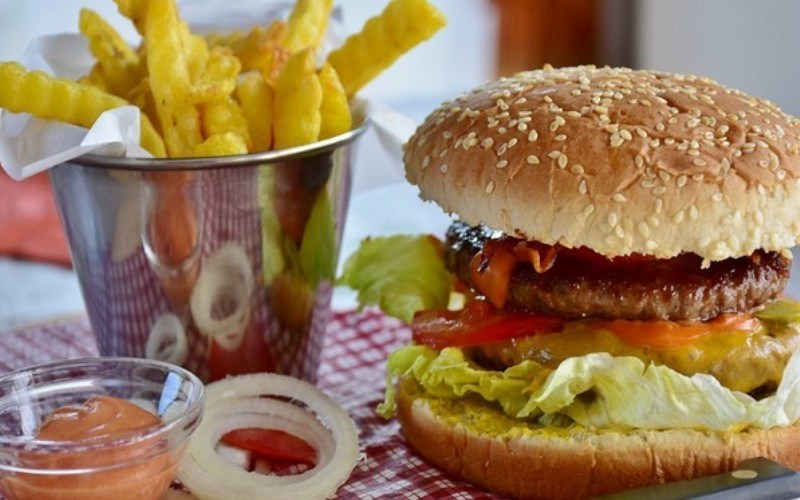Keto, Paleo or Vegan: Diets that help Teenagers be their Own Dietitians!
Energy needs of teenage years are control by activity level, metabolic rate and increased requirements to support teenage growth and development.
The important nutrients that need to increase during teenage years include energy, protein, calcium, and iron.

What do you mean by healthy eating?
Healthy eating is defined by eating a variety of food that gives you the nutrients and maintains your health and energy. Proteins, carbohydrates, fat, vitamins and minerals are essential nutrients that are included in healthy eating.
Nutrition is very important for everyone. To stay physically active and to maintain a healthy weight, healthy eating is essential to keep your body strong and healthy.
Do you know?
Boys need an average of 2,800 calories per day. And girls need 2,200 calories per day.
Essential nutrients for teenagers
Here are the main nutrients that teenagers need in their majorly in their diet:
-
Proteins
Proteins help to build, repair and maintain the tissues in a teen’s body. Around an average of 45-60 gm of protein is required.
Meat, fish, pulses, beans, cheese, yogurt, soya, peanut butter, tofu, almonds, walnuts, kidney beans, sunflower seeds etc. are foods that give you protein. It helps to grow and maintain your muscles.
-
Carbohydrates
It is a very important source of energy. Carbohydrates are naturally available in fruits, vegetables, milk, and milk products.
Carbohydrates are a good source of fiber and provide energy. It includes whole grain food items, cereals, starchy vegetables, and legumes.
-
Iron
A teenage boy needs 12 mg of iron, but a teenage girl 15 mg of iron because of menstrual loss.
Iron gives oxygen to muscles, developing the immune system and helps in brain functioning. Iron is available in green leafy vegetables, whole grain, nuts, meat etc.
-
Calcium
A teenager should get 1200 mg of calcium from food. Lack of calcium in the body leads to weak bones and osteoporosis bin stages of life.
Dairy products, cereals, leafy vegetables give you calcium. Soda drinks and sugary food are reduced calcium from the bones.
-
Calories
If teens are hyperactive and involved in many physical activities than the intake of calories are very important.
If a girl is not active, she needs 1600 calories. If she is active, she needs 2200 calories.
Similarly, if a boy is active, he needs 2800 calories. If he is not active, he needs 2000 calories.
Intake of whole grains, vegetables, fruits, low-fat dairy products, and lean meat are given calories.
-
Vitamins and Minerals
Vitamins and minerals increase the body immunity and protect from various health conditions like anemia, weakness, night blindness etc.
Here are some good sources of vitamins and minerals are milk, yogurt, cheese, eggs, carrots, sweet potatoes, peaches, papaya, mango, kiwi, guava, strawberries, spinach, salmon, tuna, egg yolks, orange, avocados, bananas, beans, whole grains, nuts and green leafy vegetables.
What are healthy snacks for teenagers?
.jpg)
Teenagers should avoid junk foods and stick to these healthy snacks for a healthy body. Some healthy snacks are listed below:
-
whole grain cereals with low-fat milk
-
hard boiled eggs
-
string cheese, cottage cheese, mozzarella cheese
-
almonds
-
peanut butter
-
soft pretzels and hummus
-
low-fat yogurt with berries
-
lean chicken, fish
-
veggie pizza
-
soymilk smoothie
-
popcorn without butter
-
baked corn chips with bean dip
-
baked potato
Why teenagers should avoid junk food?

If teenagers eat too much junk food they become inactive. Junk food causes high blood pressure, weight gain, fatigue, constipation, and concentration problems.
Junk foods such as sugar and fizzy drinks, potato chips, french fries, burgers, pastries etc. are examples of poor fuel in teens body.
Junk foods are higher in fat as they have too much salt and sugar. Junk foods are low in fiber, nutrients such as calcium and iron.
What are the effects of deficiency of nutrients in teenagers?
.jpg)
These are the major effects that effect to a teenage body due to deficiency of nutrients.
-
Affecting the ability to learn and work at maximum productivity.
-
poor health
-
increase the risk of chronic disease
-
reduced mental capacity
-
reduced physical capacity
-
chronic medical condition
-
weak bones
-
obesity
-
cavities
-
interacting with infections
A balanced diet for teenagers
Teenagers require a proper diet which helps them to be physically active and maintain their body fitness. Also, it helps to grow them and makes their bones and muscles strong.
.jpg)
Here are some suggestions for breakfast that anyone can follow for their healthy morning routine:
-
Muesli with yogurt
-
raisin toast
-
crumpets with jam
-
porridge with honey and cinnamon
-
fresh fruits and yogurt
-
high-fiber cereals
-
multigrain toast with boiled or poached eggs
-
pancake with yogurt and fruits
-
banana milkshake or fruit smoothie
-
melted cheese on toast
-
English muffin
-
pita bread with olives and feta
-
baked beans on toast
Now, it is time for teenager’s second meal of the day, you can make these healthy dishes for lunch:
-
chicken and cream cheese pita bread with grated carrots and cucumber
-
cheese and salad sandwich
-
leftover pasta with lots of cooked vegetables
-
ham, cheese and spinach wrap
-
boiled eggs and salad on multigrain bread
-
smoked salmon, salad and cream cheese bagel
-
vegetable and lentil soup in a thermos with a bread roll
-
chicken with avocado in a grainy bread roll
-
beef, tomato and lettuce sandwich with tomato chutney and salsa
-
cold cooked cheese and salad
-
lean meat quesadillas
-
turkey meat, cheese, and salad on multigrain bread
Here are some foods for your teens which help them to concentrate on their study time. Sometimes, teens feel hungry during their study time and they eat unhealthy junk foods like chips, pastries, burgers etc. You can eat these healthy snacks during your study time:
-
tinned soups, peanut butter sandwiches, breakfast cereals
-
cheese sandwiches, tuna or chicken and salad sandwiches
-
baked beans or eggs on toast
-
yogurt, nuts, dried fruits, fresh fruits, plain popcorn or veggie stick with dip
Teenagers are very physically active and have a lot of energy. Here are some healthy snacks to maintain energy while playing or exercise and helps boost their stamina:
-
breakfast cereal with milk and fruit
-
dried fruit and nuts
-
yogurt and fruits
-
English muffin with peanut butter and honey
-
banana and peanut butter sandwich
-
fresh fruit smoothie with milk and yogurt
-
low-fat muesli bar
-
small muffins made with oats
-
fruit or vegetables
-
low-fat custard and fruit
-
raisin toast and cream cheese
-
sushi hand rolls
-
fruit scone
-
dried fruits, nuts, seeds, and some choc chips
At last, healthy dishes for dinner are listed below:
-
oven fried chicken
-
quesadillas
-
meat tacos
-
pasta with no-cook tomato sauce
-
beans and hot dog
-
tomato and herb omelet
-
roti/bread
-
Indian curry fish
-
easy green salad
-
tortilla hotdogs
-
simple radish and arugula salad
-
curried sweet potato and peanut soup
-
Tandoori chicken thighs with lemon couscous
How teenage achieve a healthy weight?
.jpg)
These are some more foods which help you in achieving a healthy weight:
-
low-fat chocolate milk (250ml)
-
dried fruits
-
small coffee
-
low-fat frozen yogurt or sorbet
-
high fiber cereal
-
baked potato
-
small soft drinks, diet soft drinks or lemon water
-
BBQ or roast chicken
-
poached eggs and ham or an English muffin
Summary
Nutrients give energy that helps to control activity level, metabolic rate, and increased requirements. Eating a healthy and balanced diet maintain your body physically active and boost your stamina.
Junk food is very common in everyone’s daily eating routine, it causes weight gain, constipation, inactivity, high blood pressure.
There are many good sources of healthy snacks and many healthy foods that can anybody follow in their eating routine.
If you take a proper diet and follow these eating routines you can keep yourself physically fit and mentally able for every condition.







